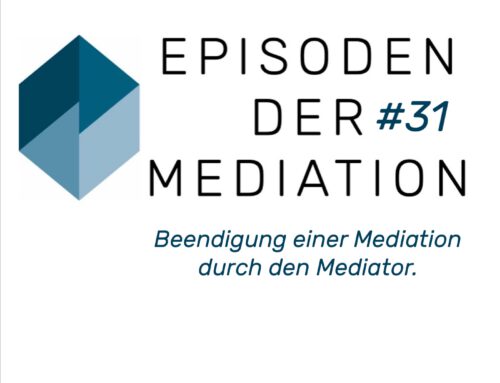Guest article:
Current opportunities and risks
for mediation from a relational perspective

Guest article
by Christian Hartwig
Mediator (BM),
Mediation trainer (BM),
Transformative Mediator (ISCT),
Lecturer at the HU Berlin
Website:
www.christianhartwig.de
1. what are the opportunities and risks for mediation in relation toright?
Even before the coronavirus crisis, it was clear that we are living in a very conflict-ridden time. Opposites and differences of opinion are clashing ever more fiercely and dividing people in many areas of life, making dialogue difficult or even impossible. Fortunately, mediation is now recognised as an instrument for conflict resolution. It therefore opens up the prospect of describing a new vision of social interaction. The future of an emerging relational vision of social life as a whole can be made tangible through them. This version strives for interpersonal communication in which the Self-determination of the individual and responsibility for society together come into play. Mediation has the potential to Concern for law and justice as well as care and cohesion to integrate.
However, the fact that mediation is primarily seen as a Instrument for problem solving is a risk for our beloved guild. As long as the mediators do not also give the parties to the conflict (CP) the Responsibility for the course of the process the potential of mediation is not fully utilised. It unfolds its full effect when CPs gain the clearest possible picture of themselves and the other person's perspective and can then take responsibility for constructive communication in a self-determined way.
As long as the mediators the parties to the conflict (CP) do not also
enable responsibility for the course of the process,
the potential of mediation is not fully utilised.
The Professional mediation is predominantly conceptualised as a means of helping disputants to satisfy all interests and needs affected by the conflict and to reduce the suffering of the parties in disputes. Of course, this can be explained by the history of its origins, as the concept is based on a individualistic world view is based on the prevailing Western understanding that people are independent beings. Because of their flexibility, their informal nature and their focus on consensus building, all dimensions of a problem with which the parties come into contact can be addressed. The Conflict is thus redefined as a common problemMediation promotes collaborative, integrative problem solving.
Recommendations for action for mediators are based on finding ways for parties to meet their individual needs – the so-called win-win solution. Thus, the view still prevails that mediators should take responsibility for steering the process to help the conflict parties to engage in a collaborative process as they need help to solve their problems. There is a tendency for this mindset to be Legalisation from the provisions of the Mediation Act and the associated Standardisation of the practice and training landscape reinforced.
The omnipresent conflicts, which are characterised by very different world views and values, show that a Solution-orientated or directive intervention does not go far enough. The conflict situations of the disputing parties are often not recognisable as opposing interests. People primarily find the detrimental effects of conflicts stressful. If they are able to regain their footing after a destabilising conflict, they are able to find a new sense of strength and self-confidence as well as a state of openness and responsiveness to other points of view.
This characterises the emerging relational worldviewwhich views people as autonomous beings who are at the same time fundamentally interconnected. Human growth and learning take place when people try to harmonise their own autonomy with maintaining positive relationships with others. Conflicts in particular enable people to optimise this balance and gain new insights as a result. CPs learn and experience how to deal with situations in which someone else's view differs from their own. Looking at differences sheds light on the conflict. It gives them the opportunity to develop or rediscover the personal strength that comes from successfully dealing with adverse circumstances and the opportunity to recognise and understand other points of view. As a result, the parties gain self-confidence and the ability to make decisions so that they can achieve what they want as a result of the changed interaction. According to the proponents of the transformative approach, when this reciprocal process is set in motion, it is also easier to find a solution that lasts. The pursuit of a solution recedes into the background, as it is expected anyway as a result of individual growth. Transformative mediation is therefore not so much about solving problems in individual cases, but about finding lasting solutions through personal growth and a change in society. The preventative nature of the intended personal development enables longer-term learning processes.
In the transformative orientation, conflict is the driving force in a process by which people can gain self-confidence and refine their identity through involvement in enduring social relationships, institutions and ideologies.
Transformative mediation is therefore not so much about solving the problem of the individual case,
but to find lasting solutions
through personal growth and a change in society.
2 What are my recommendations?
To be of proper help to the parties in conflict, mediators should understand what the conflict means to the parties and what they find difficult in their current situation. Mediators should understand what the CP is going through from their point of view. It is a time of change for each and every one of us. We know that. We as mediators can contribute to this by supporting the people who come to us to understand their efforts to understand their own situation as well as that of the other CP - if they so wish! When we stop directing the process and trying to solve problems, our actions are based on an attitude that assumes that those seeking help can and want to take responsibility for the conflict resolution process themselves.
Rather than focusing on persuading parties to resolve a problem, mediators should train themselves to follow the disputants in dialogue to find self-determined ways to overcome their bitter experiences of conflict and move on. By maintaining this focus on conflict transformation in their work, mediators can help disputants find a balance between their own strength and their relationship with others.
Sascha Weigel: Comments, statements and rejoinders are welcome as contributions to the debate. You are welcome to post them directly in the comment function or as independent editorial contributions (at least 5000 characters).
Interested in a guest post here on the INKOVEMA blog? Then send me your idea!





Leave A Comment